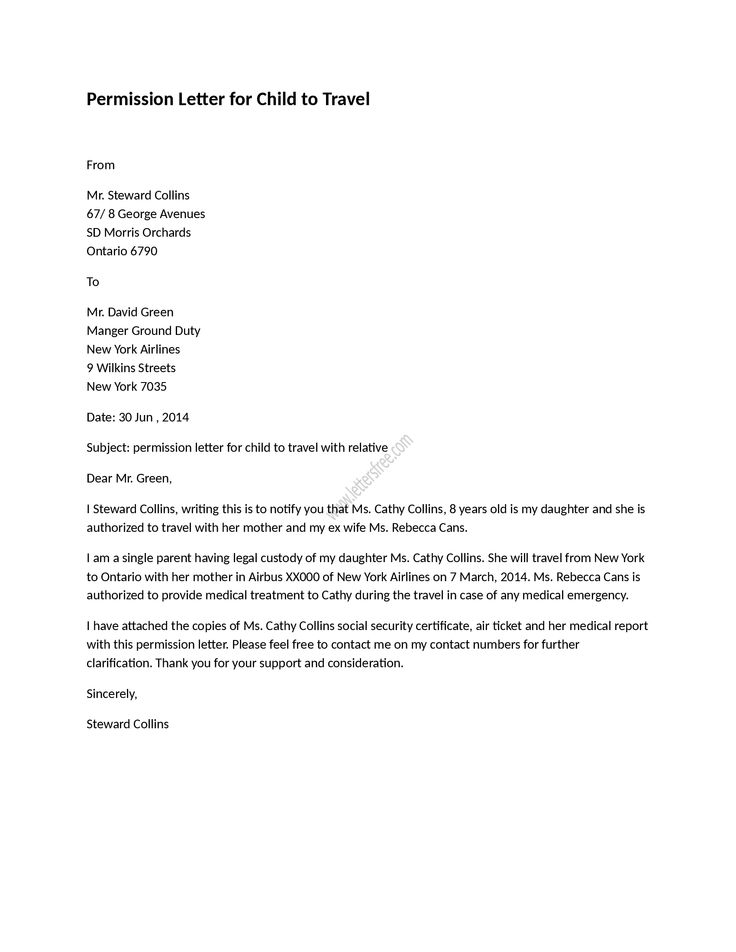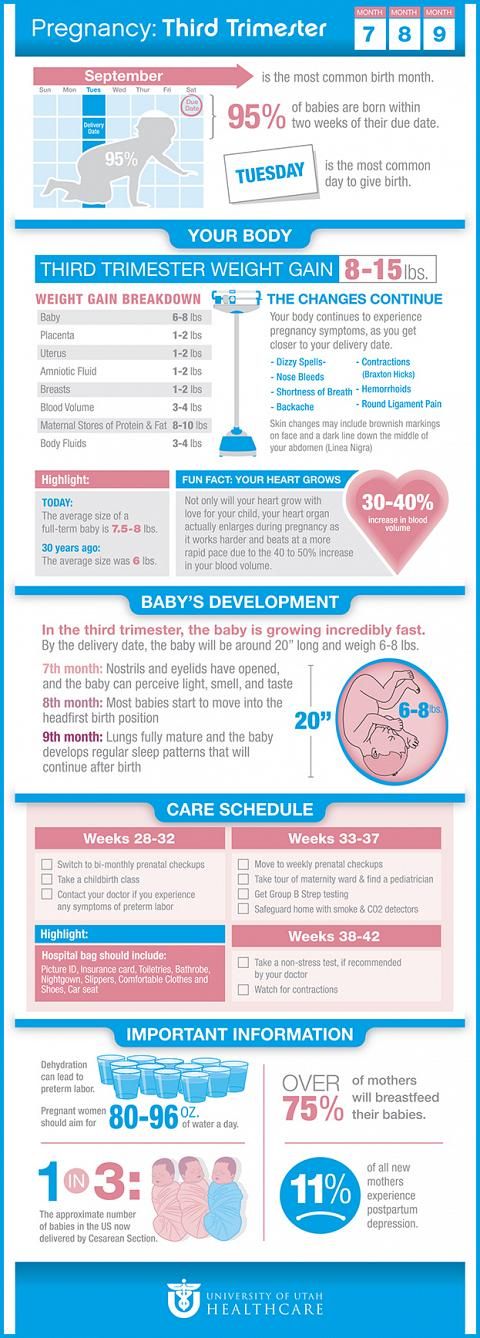How to write a child travel consent letter
Recommended consent letter for children travelling abroad
A consent letter demonstrates that a child has permission to travel outside Canada from every parent or guardian who is not accompanying them on the trip.
On this page
- When to use a consent letter
- How to write a consent letter
- Signatures
When to use a consent letter
A consent letter should be used for all cross-border travel when a child is travelling:
- alone
- with only 1 parent or guardian
- in the care of friends or relatives
- with a group, such as a sports, school, musical or religious group
This includes day trips and travel where a child will be with only 1 parent for part of a trip. For example, a child will leave Canada with both parents but will return with only 1 parent.
A consent letter is not a legal requirement in Canada, but it can simplify travel for Canadian children as it may be requested by immigration authorities when entering or leaving a foreign country or by Canadian officials or airline agents when re-entering Canada.
The person who is accompanying the child should bring the original signed letter rather than a copy. Officials may be less likely to question the authenticity of an original document.
If you are travelling with a child for whom you have always been the sole parent or guardian, you can bring a document that shows you are the child’s only parent or guardian, such as a copy of a long form birth certificate that identifies you as the only parent.
If the other parent is deceased and you have full custody of your child, you should bring a copy of the death certificate of the deceased parent when accompanying the child on a trip.
The definition of a child varies from country to country, so any child under 19 years old should carry a consent letter.
Using a letter of consent outside Canada
Countries have their own entry and exit requirements for children. The consent letter may not be considered sufficient by a country’s immigration authorities and there is no guarantee that they will recognize it.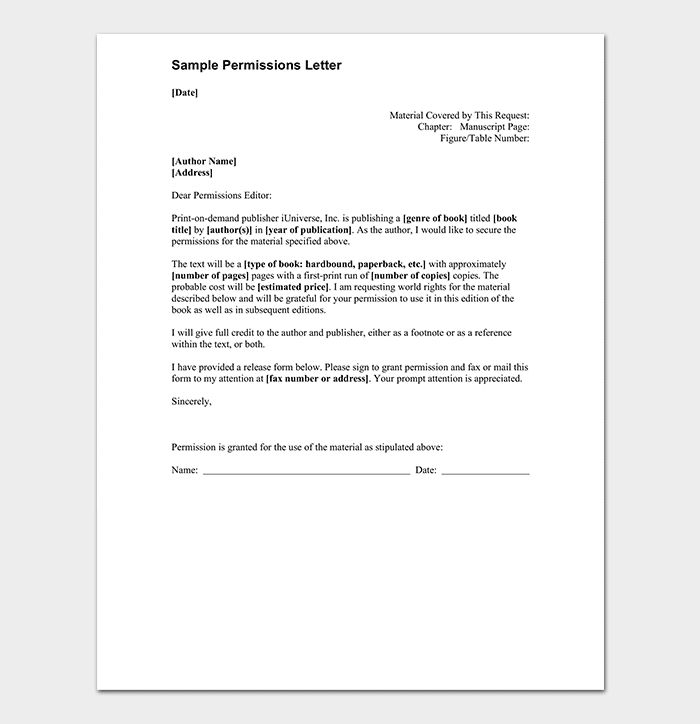 In some countries, your child may be deemed to be one of its citizens if you or the other parent is a citizen of that country. As a “deemed citizen,” your child may be subject to the same entry and exit requirements as other citizens of that country.
In some countries, your child may be deemed to be one of its citizens if you or the other parent is a citizen of that country. As a “deemed citizen,” your child may be subject to the same entry and exit requirements as other citizens of that country.
For more information, check the entry and exit requirements in the Travel Advice and Advisories for your destination country or contact the nearest embassy or consulate of the destination country before travelling.
Travel Advice and Advisories
Foreign representatives in Canada
Risk of abduction
If there is a risk that the accompanying parent will not bring your child back to Canada, consult a lawyer and proceed with caution before signing a consent letter.
International child abduction
How to write a consent letter
There are no official guidelines for the content and format of a consent letter, but they usually include:
- the name of the child
- the names and contact information of parents or guardians
- the name and relationship of the person who is accompanying the child
- information on where the child is travelling and the duration of the trip
You may use 1 letter or multiple letters depending on the situation:
- If neither parent is accompanying the child, they can both sign 1 letter or they can each sign a separate letter
- Children from the same family who are travelling together may be listed on 1 letter
- Separate letters are recommended for children who will be travelling separately for part of the trip
- Consult a lawyer when writing a letter without specific dates or for frequent cross-border trips
A sample letter and interactive form are available to guide you in writing a consent letter:
- Sample consent letter
- Interactive form for writing a consent letter
You can change the letter to fit your specific situation, but you should try to include as much detail as possible.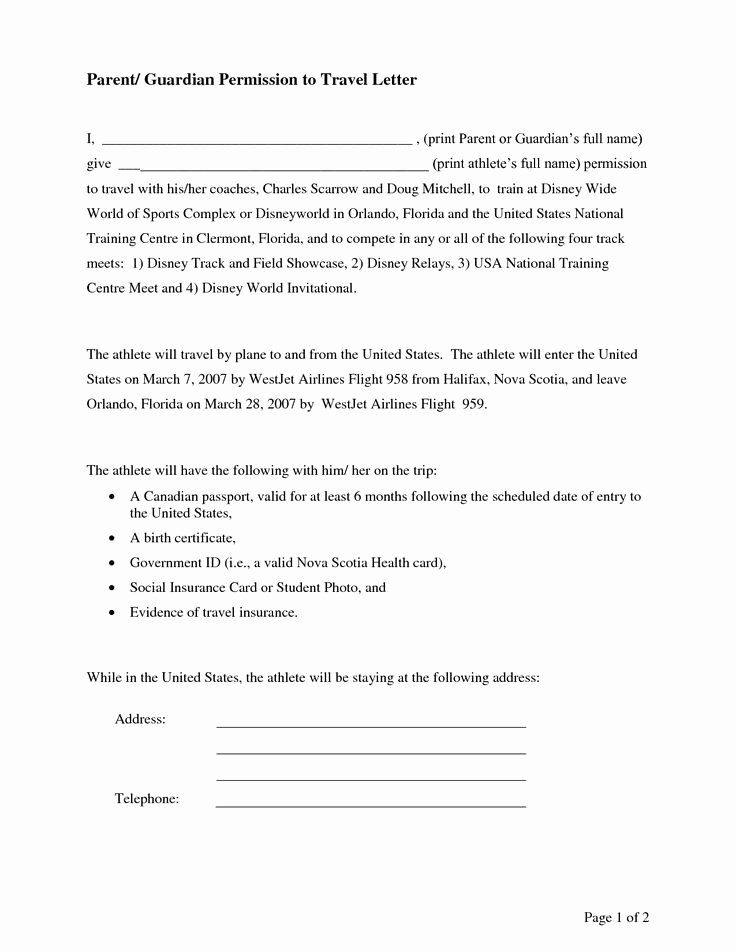
The consent letter should be signed by:
- Parents who are married or in a common law relationship who are not accompanying the child travelling outside Canada
- Separated or divorced parents who are not accompanying the child travelling outside Canada and who have 1 of the following:
- custody of the child
- decision-making responsibility for the child
- guardianship of the child (in Alberta and British Columbia
A court order or agreement may also specify who does or does not need to sign a consent letter for a child travelling abroad.
If the child is in temporary care: The consent letter should be signed by the appropriate child welfare agency representative granting consent for the child to travel with the accompanying person. If in doubt about who should sign the letter, consult a lawyer.
If one of the parents is deceased: If the child is travelling alone or without the surviving parent, the child should carry a consent letter signed by the surviving parent and a copy of the death certificate of the deceased parent.
Signature of a witness
Any adult may witness the signing of a consent letter. It is strongly recommended that a notary public witness and sign the letter as border officials may be less likely to question its authenticity.
If you are outside of Canada, a consular officer at a Canadian government office may witness the signing of a consent letter (fees apply).
Related links
Other resources
- Children travelling to Canada (Immigration, Refugees and Citizenship Canada)
Something is broken
Provide more details (optional):
The page has spelling or grammar mistakes
Provide more details (optional):
The information is wrong
Provide more details (optional):
The information is outdated
Provide more details (optional):
I can’t find what I’m looking for
Describe what you’re looking for (optional):
Other
Provide more details (optional):
Thank you for your help!
You will not receive a reply. For enquiries, please contact us.
For enquiries, please contact us.
- Date modified:
Free Minor (Child) Travel Consent Form - Word
Home » Consent » Minor (Child) Travel
Updated December 06, 2022
A child travel consent form can be used for any minor that has permission from their parent or legal guardian for domestic or international travel with an individual, group, or organization. In addition, this is also commonly used when the child is traveling alone. It’s preferred to have the consent form signed by both parents, although one is sufficient.
When to Use
A minor child travel consent form is used when a minor child is traveling:
- Alone
- With another relative or friend
- With an organization or group
Frequently Asked Questions (FAQ)
Can a child travel with one parent under US law?The U.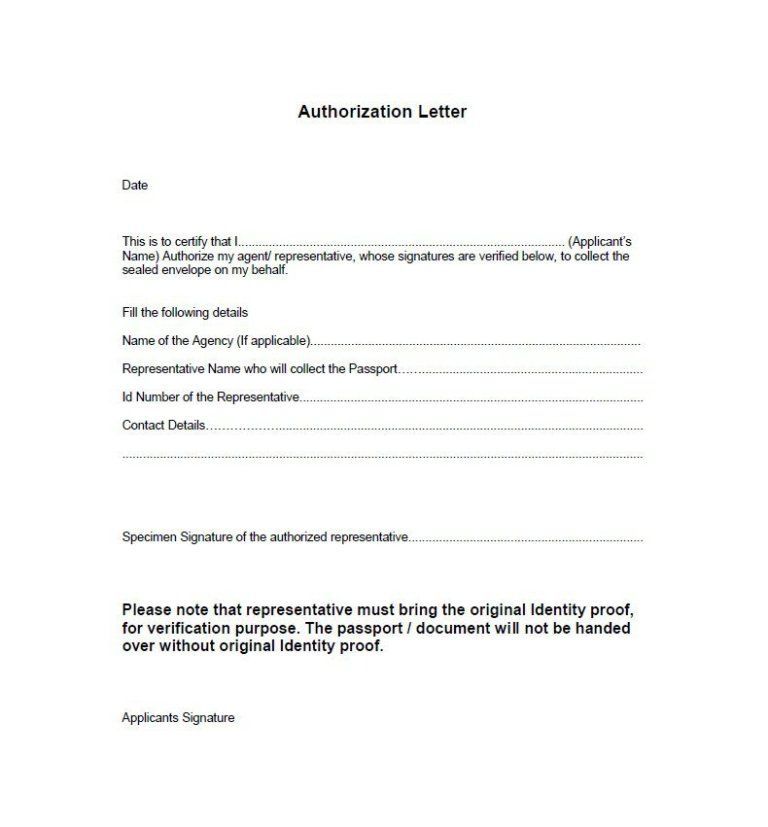 S. Customs and Border Protection (CBP) recommends if a child is traveling with one parent, especially if the parents are divorced, to carry a note from the other parent stating their consent to the trip. The note can be as simple as the following:
S. Customs and Border Protection (CBP) recommends if a child is traveling with one parent, especially if the parents are divorced, to carry a note from the other parent stating their consent to the trip. The note can be as simple as the following:
“I acknowledge that my wife/husband/etc. is traveling out of the country with my son/daughter/group. He/She/They has/have my/our permission to do so.”
In addition, it’s highly recommended to have the note or consent notarized.
How old does a child have to be to travel alone?A child must be at least 5 years old to travel without a parent or guardian. This must be for a direct flight, with no connections.
Children 8 years and older may fly with connections and be escorted by airline personnel to their gate. It’s recommended all minors under the age of 18 carry a travel consent form.
Does a travel consent form include medical decisions?A minor travel consent form does not include permission to make medical decisions on behalf of the child.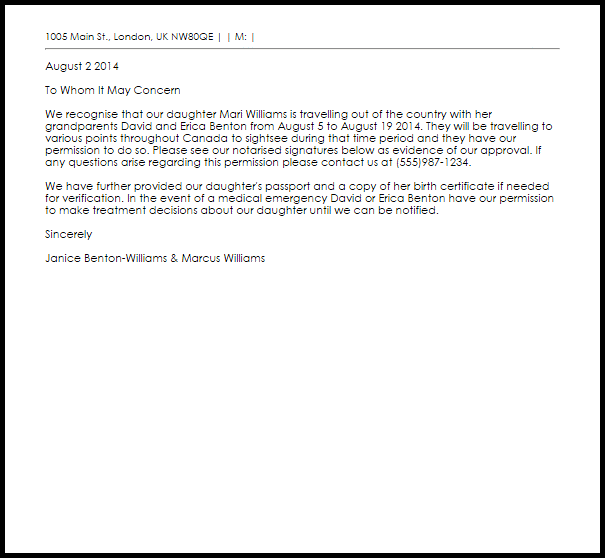 If the consenting parent or guardian would like to hand over those rights, a minor child power of attorney form should be authorized.
If the consenting parent or guardian would like to hand over those rights, a minor child power of attorney form should be authorized.
Sample
For the comprehensive document, please download the free form or hit “create document.”
MINOR (CHILD) TRAVEL CONSENTI. THE PARENT(S).
I/We, [PARENT(S)/GUARDIAN(S) NAME], am/are the lawful custodial parent(s) and/or non-custodial parent(s) or legal guardian(s) of:
II. THE MINOR.
Full Name: [MINOR’S NAME]
Date of Birth: [DOB]
Place of Birth: [LOCATION]
Passport Number (if applicable): [9 DIGITS]
- Country of Issuance: [COUNTRY]
- Date Issuance: [DATE]
- Date of Expiration: [DATE]
III. TRAVELING ALONE/ACCOMPANYING PERSON.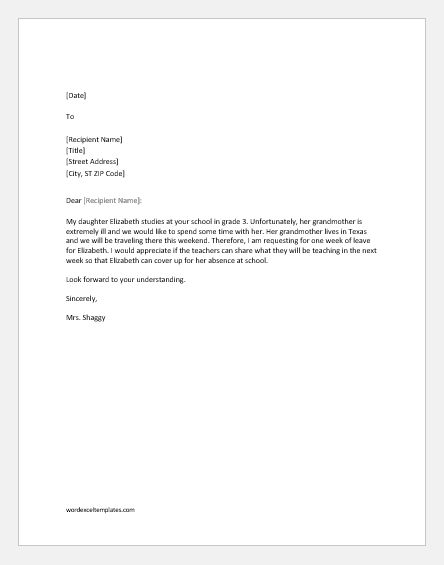 (check one)
(check one)
☐ – I authorize my child to travel alone.
☐ – I authorize my child to travel with the following individual/organization:
- Individual/Organization Name: [FULL NAME]
- Relationship to Child (if applicable): [RELATIONSHIP]
- U.S. or Foreign Passport Number (if applicable): [9 DIGITS]
- Country of Issuance: [COUNTRY]
- Date Issuance: [DATE]
- Date of Expiration: [DATE]
IV. ITINERARY.
I authorize my child to travel to the following location [LOCATION] during the period beginning on [START DATE], and ending on [END DATE].
V. SIGNATURE(S).
Parent / Legal Guardian Signature: ________________________ Date: ______________
Print Name: _______________________
Parent / Legal Guardian Signature: ________________________ Date: ______________
Print Name: _______________________
By using the website, you agree to our use of cookies to analyze website traffic and improve your experience on our website.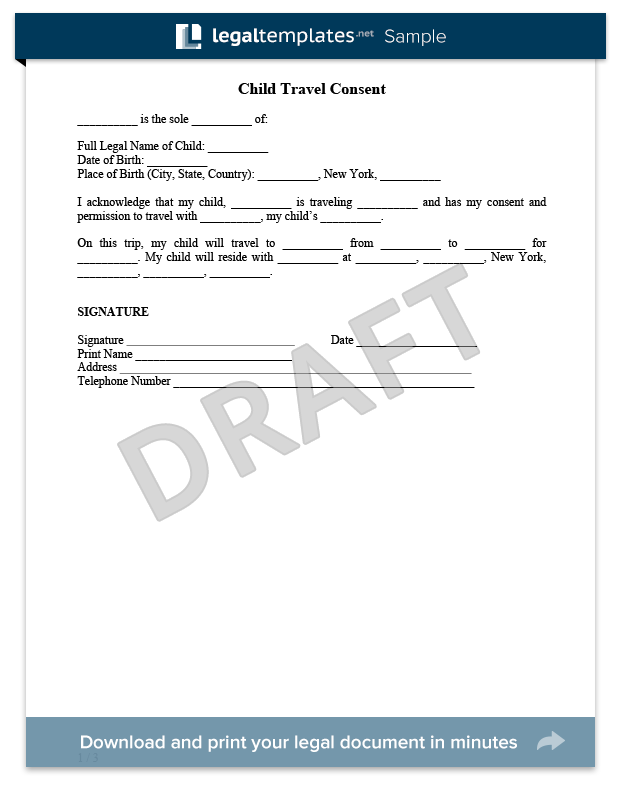
how to write an application and a power of attorney, what must be indicated and what documents are needed?
According to Russian law, a minor child cannot travel to any city in the country on their own, unaccompanied by adults. Any capable person who has been entrusted with such a right by the parents can accompany the child on a trip. To provide the child with such a trip without their participation, parents need to draw up a number of documents, including consent to the trip.
How to write permission from parents?
Consent for travel of a child accompanied by a third person is considered a mandatory document for the accompanying person, which is required until the child has reached the age of majority. Such a document can be drawn up for a relative, teacher, coach and other competent persons who will accompany the child from home to the city of destination and back.
This document is not considered mandatory by law, since formally a child over 12 years old can travel around the country on their own, which happens quite rarely. Therefore permission for an accompanying person is recommended to be available in order to avoid misunderstandings on the road and transport.
Therefore permission for an accompanying person is recommended to be available in order to avoid misunderstandings on the road and transport.
Consent for a child's travel within Russia accompanied by a third person is drawn up in an arbitrary form.
What data must be entered?
The consent for the child's travel from the parents must contain the following information:
- Personal data of the parent, guardian of the child, including passport number, place and date of birth, address. nine0022
- Passport details of the accompanying person.
- Personal data about the child, including the details of the document proving his identity.
- Travel dates.
- City or region where the trip is made.
- Indication of consent to travel with the specified person through the territory of the Russian Federation.
- The date the document was created.
- Signature of parent/guardian.
Notarial certification in this case is optional.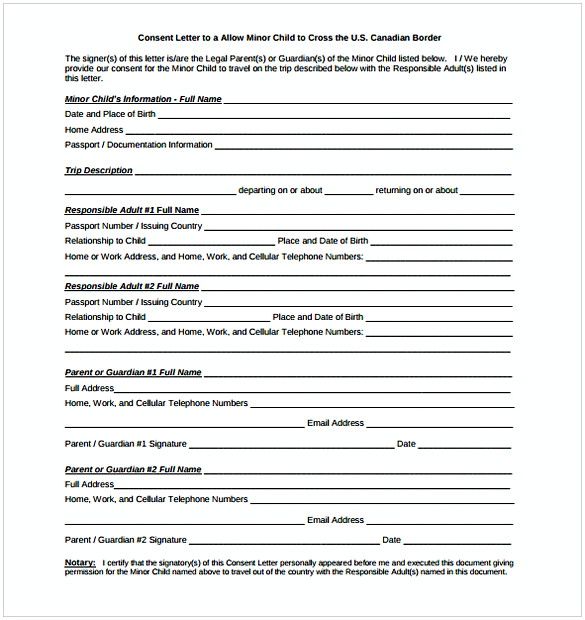
Statement
Consent for a child to travel around the country accompanied by a third person is drawn up in an arbitrary form and looks something like this:
Consent for a child to travel to another city:
From citizen Ivanova Darya Mikhailovna.
Passport series 4321 No. 446699,
date of birth 02/13/1989,
living at the address Taganrog, Pushkin street, house 2, apt. 12.
CONSENT
I, Ivanova Darya Mikhailovna, give my consent to the departure of my (s) minor son (s) Ivanov Petr Nikolaevich, date of birth 06/26/2009year, birth certificate number II-CE No. 123456, to the city of Novosibirsk from May 10 to May 20, 2019 to participate in the Olympiad, accompanied by a teacher Volkova Irina Olegovna, passport series 1234 No. 678901.
Ivanova Daria Mikhailovna.
Signature.
Registration date: 05/01/2019
Signature and notarization.
Print.
- Download the parental consent form for the child's trip to another city
- Download the sample parental consent for the child's trip to another city
What documents might be useful?
When traveling, the child may also need documents such as a birth certificate or passport, if available, and health insurance.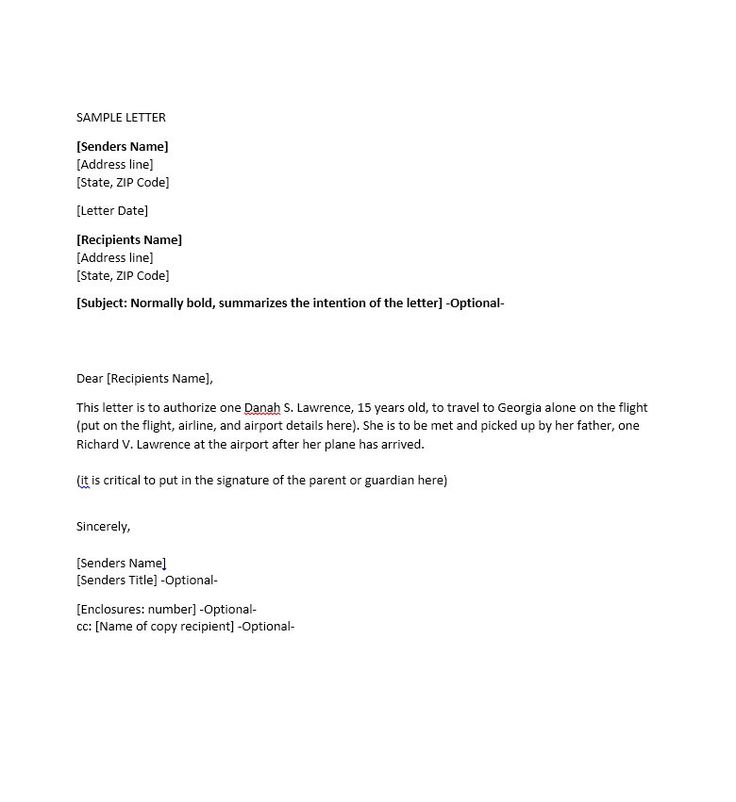 When traveling with a child across the country, the accompanying person may also need other documents:
When traveling with a child across the country, the accompanying person may also need other documents:
- Own identity card.
- Consent or power of attorney of the parents for the transportation of the child.
When do I need a power of attorney? nine0005
If a child travels outside the city accompanied by one of the relatives, such as grandparents, aunts or uncles, then most often a power of attorney certified by a notary is drawn up. This document can also be issued for an outsider who is not a relative of the child, but whom the parents trust him.
A power of attorney for a child when moving around Russia is required so that the accompanying person can confirm their authority in relation to the minor. nine0003
For example, in some cities of the Russian Federation there is a curfew, during which children can only be outside if accompanied by an adult. In addition, a power of attorney may be needed in transport when transporting a child from one city to another , when employees of the Russian Railways, traffic police or the police may ask if the accompanying person has the relevant documents for his transportation.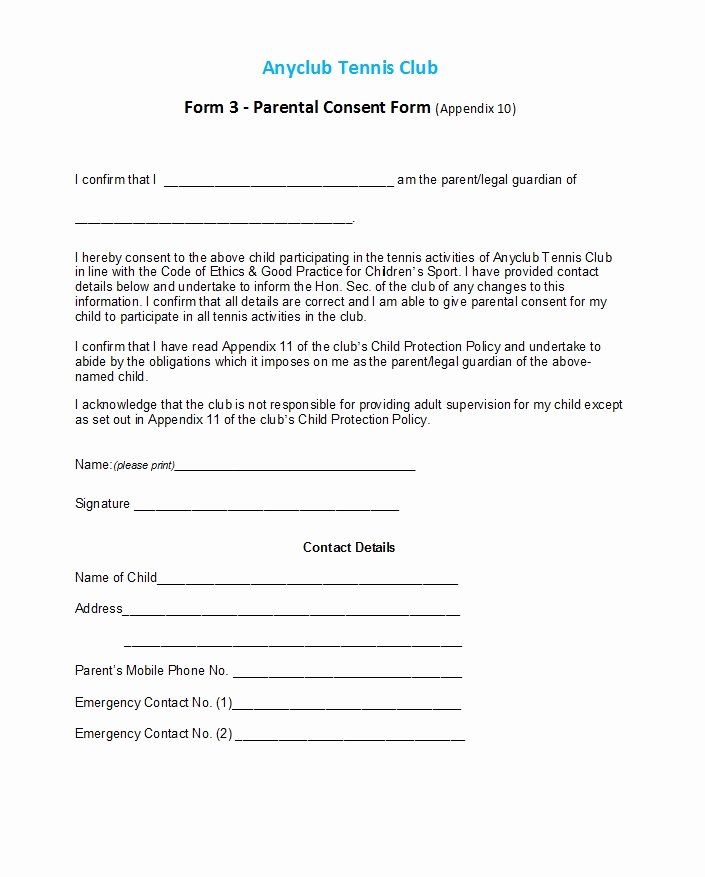
Sometimes, without a power of attorney for the child, employees can remove from the train. A power of attorney may also be needed in emergency cases while traveling, for example, if a child needs to be hospitalized. nine0003
Although a power of attorney is considered a non-legislative formal document, it can save a lot of time on the road when checking documents and ensure the safety of the child during the trip.
Power of attorney
From gr. Sidorov Alexei Petrovich, date of birth 06/14/1984, passport series 3232 No. 112255, residing at the address Voronezh, st. Esenina, d. 51.
And from gr. Sidorova Anna Mikhailovna, date of birth 03/11/1985, passport series 1234 No. 677899, living at the address Voronezh, st. Esenina, d. , represent our interests in relation to our daughter and be responsible for her health on a trip along the route Voronezh-Moscow in the period from 15.06-30.06.2019. nine0003
Signatures of parents.
Date.
Signature and stamp of a notary.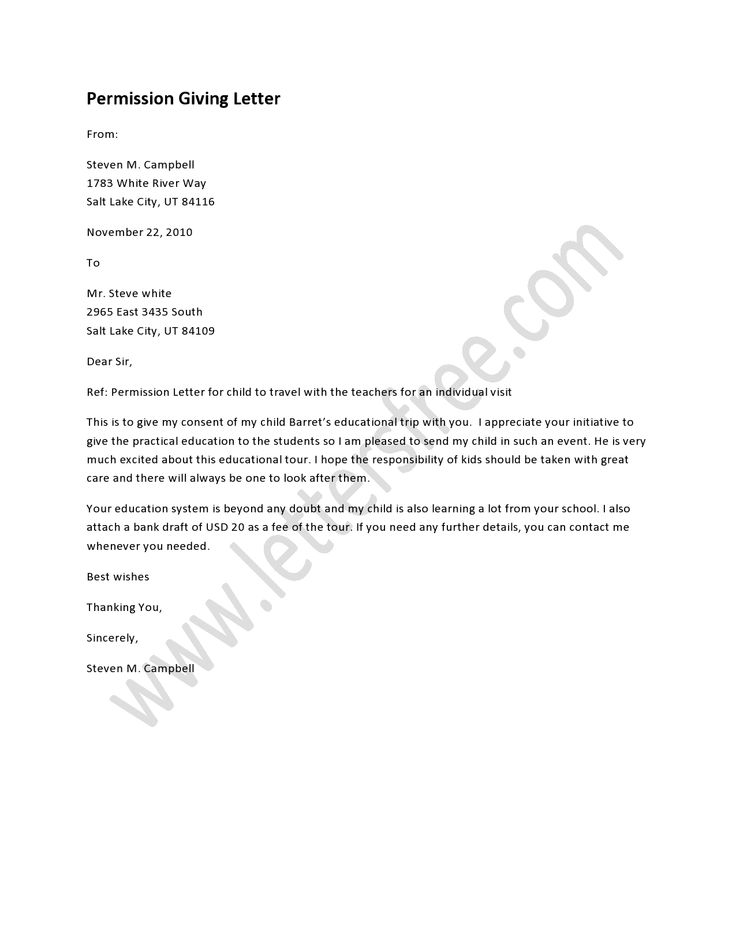
Nuances of filling
Any power of attorney must be in writing and certified by a notary . The law does not provide for a specific template for drawing up a power of attorney, so it can be written in any form. The text of the power of attorney for the child must comply with the requirements of Art. 185 of the Civil Code of the Russian Federation and contain the following items:
- Personal information about the child (last name, first name, patronymic, date of birth and details of the passport / birth certificate). nine0022
- Passport details of the representative/accompanying person.
- Passport details of parents.
- Date of issue of the power of attorney.
- Period for which the document is issued.
- City or list of cities the child is going to visit.
- Authorization of the accompanying person.
- Download the form of power of attorney from parents to accompany the child
- Download the sample power of attorney from parents to accompany the child
At the same time, in order to draw up a power of attorney in the presence of a notary, parents must have a number of documents with them, including:
- Passports of one or both parents.
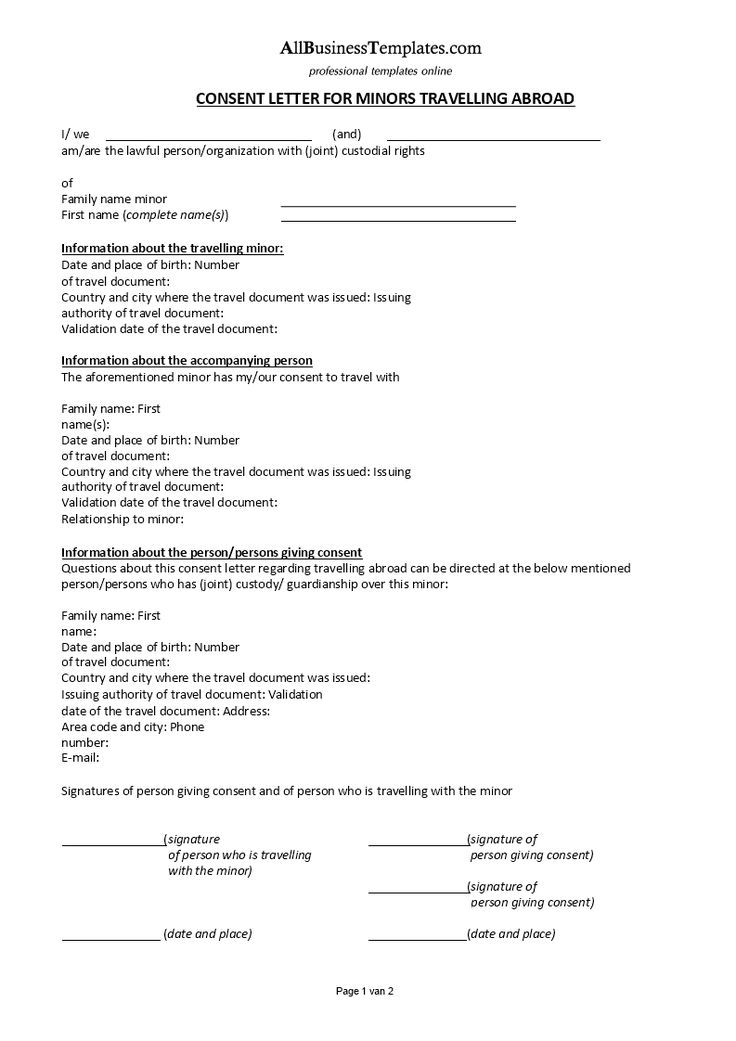
- Child's identity card.
- Passport of the accompanying person.
- Marriage certificate of the child's parents (not always required).
Some notaries may require the birth certificate of the parent whose relative (grandparent) will be accompanying the child. Sometimes you may need a certificate of death of one of the parents, a document on the adoption of children, and others. nine0003
Parents' consent or power of attorney to travel around the country of their son or daughter with an accompanying person is a kind of insurance for both parents and accompanying person. When certified by a notary, the document acquires legal force and acts as a guarantor of the child's safety when traveling around Russia, and in an emergency will help to quickly make a decision regarding the child.
How to get a parent's consent for children to leave Russia?
Shtoyan Gayane
Attorney at the Moscow Chamber of Advocates, mediator, senior lawyer at BGP Litigation Family Law Practice
September 06, 2022
Tips
Pay attention to the date of publication of the material: the information may be out of date due to changes in legislation or law enforcement practice.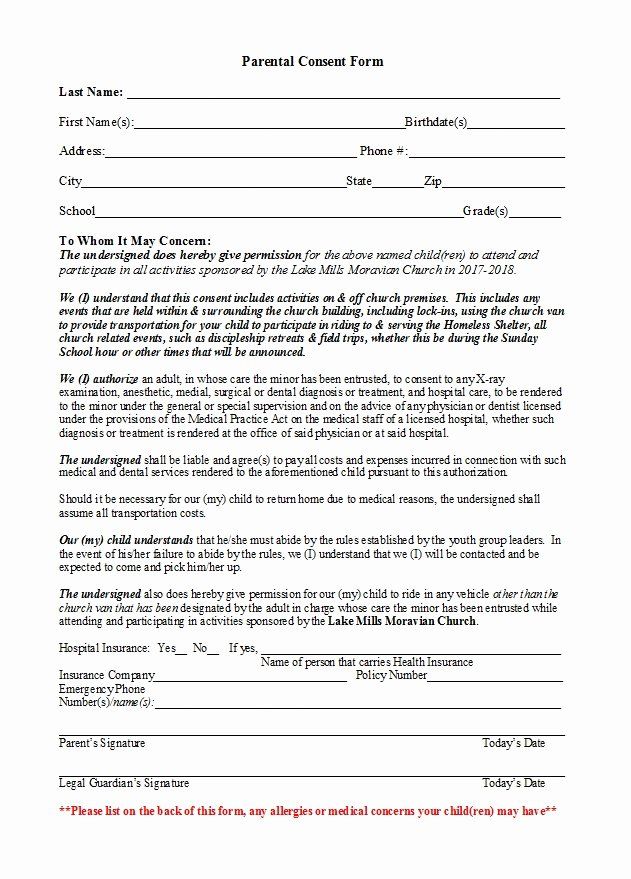
When children go abroad with their mother, it is not always possible to manage without the consent of the father to leave the country without a notary's consent. We will figure out whether one such document is enough for all children or will you have to pay a notary for several0003
“My husband and I are divorced. We have two minor children. Now I am planning to move to Turkey. I take the younger child right away, and the eldest son will remain in Russia until graduation and then come to me. The ex-husband doesn't mind. Is it possible to obtain from a notary his consent to the departure of children abroad in one document or do you need a separate permit for each child? – this question was asked to be answered by a reader of AG.
When do I need to get a parent's consent for a child to leave Russia? nine0005
The rules for the departure of children outside the Russian Federation are defined in Art. 20 and 21 of the Federal Law of August 15, 1996 No. 114-FZ “On the Procedure for Departure from the Russian Federation and Entry into the Russian Federation”.
114-FZ “On the Procedure for Departure from the Russian Federation and Entry into the Russian Federation”.
In order for a parent to leave Russia with a child, it is not necessary to obtain the consent of the other parent. However, under Russian law, a minor citizen of the Russian Federation can leave our country together with one of the legal representatives, only if the other legal representative has not filed a statement of disagreement to leave. This means that if a parent prohibits a child from leaving the country, he will not be able to go abroad (read more about this in the article “Rules for the departure of children from Russia have been updated”) .
Therefore, it is advisable to clarify the information about the absence of such a ban before the trip in order to avoid difficulties at border control. You can find out about this in the migration unit of the territorial body of the Ministry of Internal Affairs of Russia (for example, in the capital this is the Department for Migration of the Main Directorate of the Ministry of Internal Affairs of Russia for Moscow).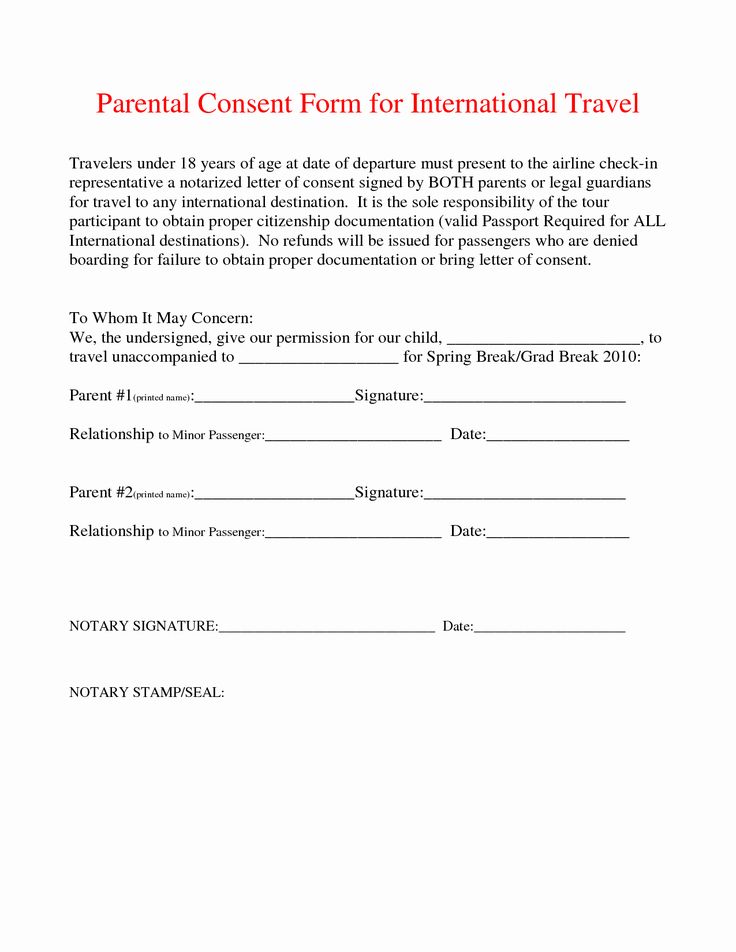
Read also
Moving abroad with a child for permanent residence
If a minor leaves the country with one parent, the second will have to agree on relocation and agree on the order of their communication. Otherwise, the child may not be released from Russia. Or they will be returned to their homeland in case of moving, and the parent living with him is recognized as an international kidnapper
02 June 2022 Tips
Although the consent of the second parent is not required for a child to leave Russia with one of the parents, it is important to pay attention to the rules of the country of entry. Consent may be needed to obtain a visa (for example, if you plan to travel to the Schengen countries), as well as for a long-term stay in another country (for example, when obtaining a temporary residence permit). The need to obtain parental consent in such cases does not depend on whether the spouse is divorced or not. nine0003
If we are talking about a trip related to a change in the place of residence of the child, we strongly recommend that you arrange this with the other parent.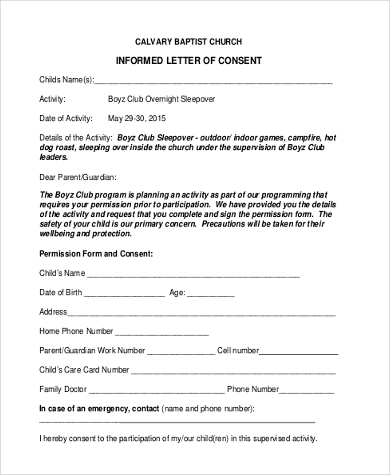 Otherwise, he can achieve the return of the child to his homeland through the court. The conclusion of an agreement on determining the place of residence of the child in a simple written or notarial form would be the preferred option. It will allow flexibility in approaching the solution of this issue. For example, it can set the rules for changing the place of residence of the child. nine0003
Otherwise, he can achieve the return of the child to his homeland through the court. The conclusion of an agreement on determining the place of residence of the child in a simple written or notarial form would be the preferred option. It will allow flexibility in approaching the solution of this issue. For example, it can set the rules for changing the place of residence of the child. nine0003
Is it possible to issue one consent to travel if there are several children in the family?
The father can give consent to the departure of children from Russia in one document. It is not necessary to issue a notary's consent to each of them - the legislation does not establish such a rule. In addition, this will allow parents to reduce notary costs - one document is cheaper than three.
However, when applying for one permit for several children, parents should think not only about the benefits, but also about possible problems. nine0003
1. Consent for the departure of children from the country is issued for a certain period, for example, for a year, or until they reach the age of majority. In the second case, the age of the older child will be taken into account. For example, the first child is 16 years old, and the second is 10 years old. Then for the youngest, the permission will be valid not for 8 years, but only for 2 years, until the eldest child reaches the age of majority.
In the second case, the age of the older child will be taken into account. For example, the first child is 16 years old, and the second is 10 years old. Then for the youngest, the permission will be valid not for 8 years, but only for 2 years, until the eldest child reaches the age of majority.
2. There may be problems when entering another country with one child, and not with all the children listed in the consent. Border officials may refuse entry if they consider that the permission to cross the border was issued by the children together and not individually. Therefore, it is recommended to clarify in the agreement that children can cross the border both together and separately. nine0003
3. When moving separately, one child will go abroad with the original consent of the father to leave Russia. And for the second, the notary can prepare an electronic copy of this document. We recommend asking a notary to certify the equivalence of an electronic document with a paper document.